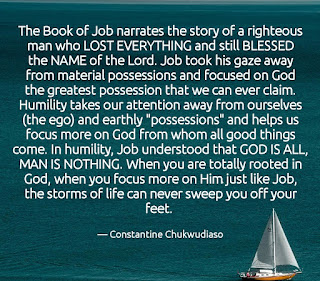Trust and Follow (Wednesday, Week 26, Year 2, St Jerome)

Those of us who are active users of the social media platforms like Facebook, twitter and the rest are much familiar with the word “follower” (e.g. a follower of a celebrity). Those of us who are lovers of sports and those who patronize the entertainment industry know what it means to be a “fan” (e.g. a fan of Man-UTD FC, BB Naija and so on). Now, the two words (follower and fan) as used within the context of sports and entertainment seem to mean exactly the same thing. In this case then, to be a fan or a follower is to admire someone or a group to the point of longing to be like them. A fan or a follower admires the success of a celebrity, and identifies with him or her. A fan or a follower may not be interested in the sorrowful aspect of the celebrity’s life; he may not care to embrace whatever unpleasant experiences the celebrity went through before he or she became famous. Now, there is a difference between a “fan” and a “real-follower”. And this is what Jesus is trying to exp...

























